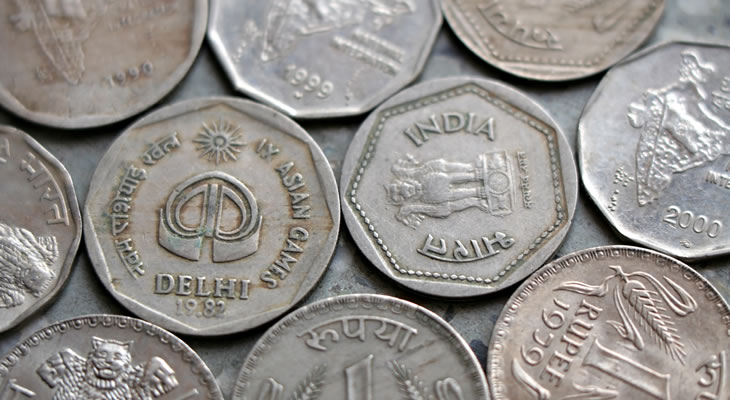The Pound has slipped against the Indian Rupee over the current week and may face more volatility ahead on inflation data.
Pound Turbulence ahead on UK Inflation
In a recurrent situation, future Pound movement is tied to both inflation and jobs figures for the UK.
Under normal circumstances, higher inflation would usually raise the chances of a Bank of England (BoE) interest rate hike.
Problematically, however, UK wage growth has repeatedly remained below the pace of inflation in recent months.
This means that a Bank of England (BoE) interest rate hike is less predictable with higher inflation and higher prices could just worsen the situation for UK consumers suffering from a wage squeeze.
If inflation and wage growth remains as opposites, then the Pound may tumble against the Rupee.
Rupee may Struggle if Government Fails to Manage Indian Economy
On a week when India celebrates its independence, the Indian Rupee has progressively risen against the Pound. Opening at an exchange rate of 0.0119, the INR GBP exchange rate has since closed in the region of 0.0120.
This rise is partly due to Pound weakness, given that Indian data has been limited over the week.
Looking ahead, the Indian economy and by extension the Indian Rupee could be in for a decline, depending on the status of India’s public sector.
In a recent forecast, top Morgan Stanley analyst Ruchir Sharma has stated that government involvement in key areas has proven a limiting factor. In his own words, Sharma believes that;
‘The state remains meddlesome. The public sector’s presence in the economy is overwhelming, which is holding back the Indian economy. Governments exert their greatest impact on economic growth by encouraging investment.
In India, as in many countries, investment growth has been weak since the global financial crisis of 2008.The main reason India is still growing at a decent clip is strong consumption, which is playing an increasingly large role in driving the economy’.
Sharma has highlighted some ways in which the Indian government helps the country, but there is clearly more work to be done;
‘Of course, the government has carried out some economic reforms, such as the passage of the GST with its complex, multiple tax rates. But these measures are in keeping with India’s long tradition of incremental reform, which do just enough to keep the economic momentum going.
These are not the kind of disruptive reforms that were carried out by miracle economies like China and South Korea, which fundamentally changed the growth profile of their nations’.
If the Indian government continues to do the ‘minimal’ effort in keeping the economy running, the Indian Rupee may gradually decline against a more stable Pound.
Recent Interbank GBP INR Exchange Rates
At the time of writing, the Pound to Rupee (GBP INR) exchange rate was trading at 82.6346 and the Rupee to Pound (INR GBP) exchange rate was trading at 0.0120.


Comments are closed.